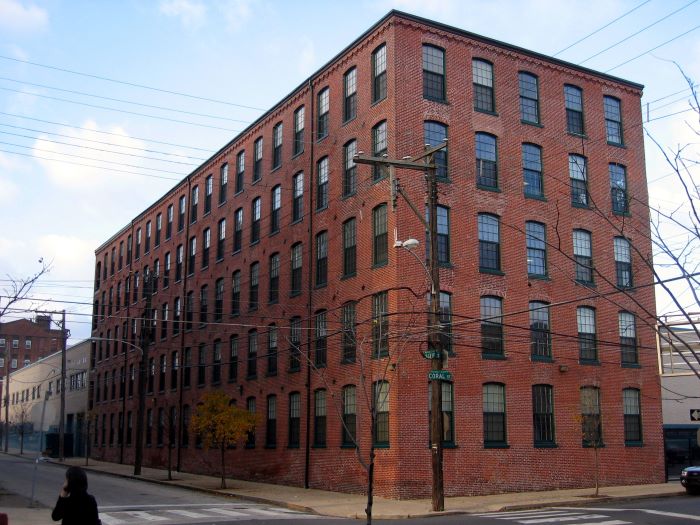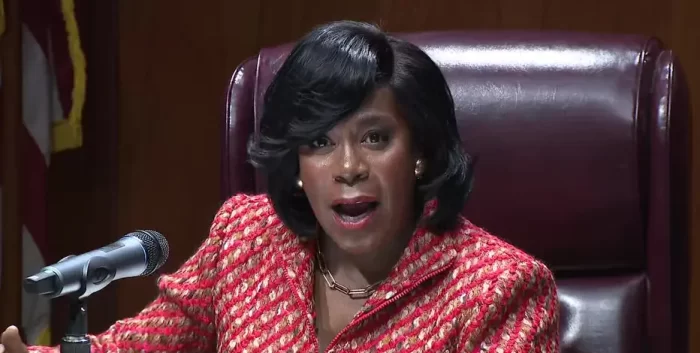When Philadelphia Mayor Cherelle L. Parker announced plans to bring order to the city’s chaotic Kensington neighborhood, reactions were mixed. While residents hoped for positive change, some activists criticized the approach as too reminiscent of heavy-handed ’90s policing tactics. In this article we talk about Mayor Parker Kensington Cleanup Vital for Philly’s Renewal.
However, a closer look reveals why Mayor Parker’s cleanup effort could be vital for revitalizing not just Kensington, but all of Philadelphia.
The State of Kensington Today

Kensington has become an epicenter of the opioid crisis, with open-air drug markets, widespread poverty, unemployment, and crime. The neighborhood’s decay is highly visible, with used needles littering parks and sidewalks as drug addicts openly abuse substances with little consequence.
This public disorder and lawlessness hasn’t always defined Kensington. Even in the 1990s, when crime rates were higher citywide, most neighborhoods maintained decorum by adhering to basic laws prohibiting open-air drug sales, public intoxication, and similar quality-of-life offenses.
The Roots of Disorder
So how did Kensington descend into such visible chaos? Much of the blame lies with the “no enforcement” mentality adopted by previous city leaders like former District Attorney Larry Krasner.
By drastically reducing prosecution of gun and drug crimes, Krasner effectively decriminalized entire classes of offenses in Philadelphia. Criminals quickly got the message that carrying illegal guns and selling drugs openly would go unpunished.
This lax approach to quality-of-life crimes matters because it shapes public norms and behaviors. When the authorities send a message that low-level lawbreaking is acceptable, it emboldens criminals while driving law-abiding residents indoors. Public spaces are then ceded to the disorder.
The ‘Needle Park’ Effect
We’ve seen the damaging impact of enabling criminal behaviors under the guise of “harm reduction.” Philadelphia’s hands-off approach has turned neighborhood parks and public spaces into de facto “needle parks” where opioid abusers feel free to dispose of syringes and openly use drugs.
Parks meant for families and recreation become effectively off-limits when used as safe havens for criminal activity—all of the public investment is wasted as these spaces are rendered useless for their intended purpose.
The same goes for public transit, schools, and other civic resources. An unsafe, disordered subway system will drive away commuters who can afford alternate transportation. Unchecked disruptions make it harder for all students to learn.
At its core, this disorder marginalization of law-abiding residents is the exact opposite of progressive values of enabling community access to public goods.
Taking Back Public Spaces
By allowing low-level offenses to proliferate unchecked, Philadelphia enabled the normalization of criminal behaviors that actively exclude the city’s general population from utilizing its public spaces and resources.
Mayor Parker’s cleanup initiative represents a pivot back towards restoring public order as a prerequisite for healthy communities. Her administration recognizes that effectively serving all residents—including providing addiction services—requires first establishing agreed-upon rules and norms.
This is simply common sense. Parents understand that while you don’t call the police for every sibling squabble, completely abdicating authority leads to dysfunctional chaos. Likewise, cities cannot function properly when they fail to uphold basic codes of public behavior.
The Return of ‘Broken Windows’ Policing
The Kensington cleanup plan channels the spirit of the iconic “broken windows” theory of policing. This strategy recognizes that visible signs of disorder and low-level lawbreaking create an environment that enables more serious crimes to flourish.
By consistently enforcing laws against smaller offenses like public intoxication, localities can maintain public order and prevent urban spaces from devolving into no-go areas dominated by the most aggressive rule-breakers.
While critics deride broken windows policing as overly harsh, its principles were key to the nationwide crime drop of the 1990s. Major cities reconnected with community policing fundamentals: maintaining an approachable presence, establishing clear public norms, and preventing disorder from taking root.
Done properly, this approach doesn’t rely on draconian crackdowns. Its focus is restoring a community’s sense of order, vibrancy and equal access to public spaces. When petty offenses are routinely tolerated and ignored, however, the resulting free-for-all damages the entire neighborhood.
The Path Forward: Balancing Compassion and Order
To be clear, no one is advocating for filling prisons with non-violent drug offenders or ignoring the root societal causes of addiction. Harm reduction, community-based treatment and social services remain crucial elements of any humane drug policy.
However, allowing entire neighborhoods to become consumed by open-air drug markets and street disorder ultimately helps no one—including those suffering from addiction themselves. Excessive permissiveness simply enables the devastation to spread.
The path forward requires balancing compassion with re-establishing basic public norms. It means providing ample addiction services and pathways to recovery, while ensuring parks, schools and neighborhoods remain stable environments for all residents.
For Kensington and all Philadelphia communities, Mayor Parker’s cleanup effort signals a crucial step towards reviving the city’s civic fabric and reopening public spaces to law-abiding residents. By restoring order, the administration can begin addressing the systemic issues that enabled such chaos—creating a Philadelphia that truly works for everyone. I sincerely hope you find this “Mayor Parker Kensington Cleanup Vital for Philly’s Renewal? Find Out Here” article helpful.

Skylar Lacey, a Travel and Tourism Management graduate from Temple University, offers 5 years of experience in travel writing and airport logistics at PhiladelphiaAirport.net. Her expertise helps travelers make the most of their journeys through Philadelphia International Airport. Connect with her on Instagram for more travel tips and insights.







